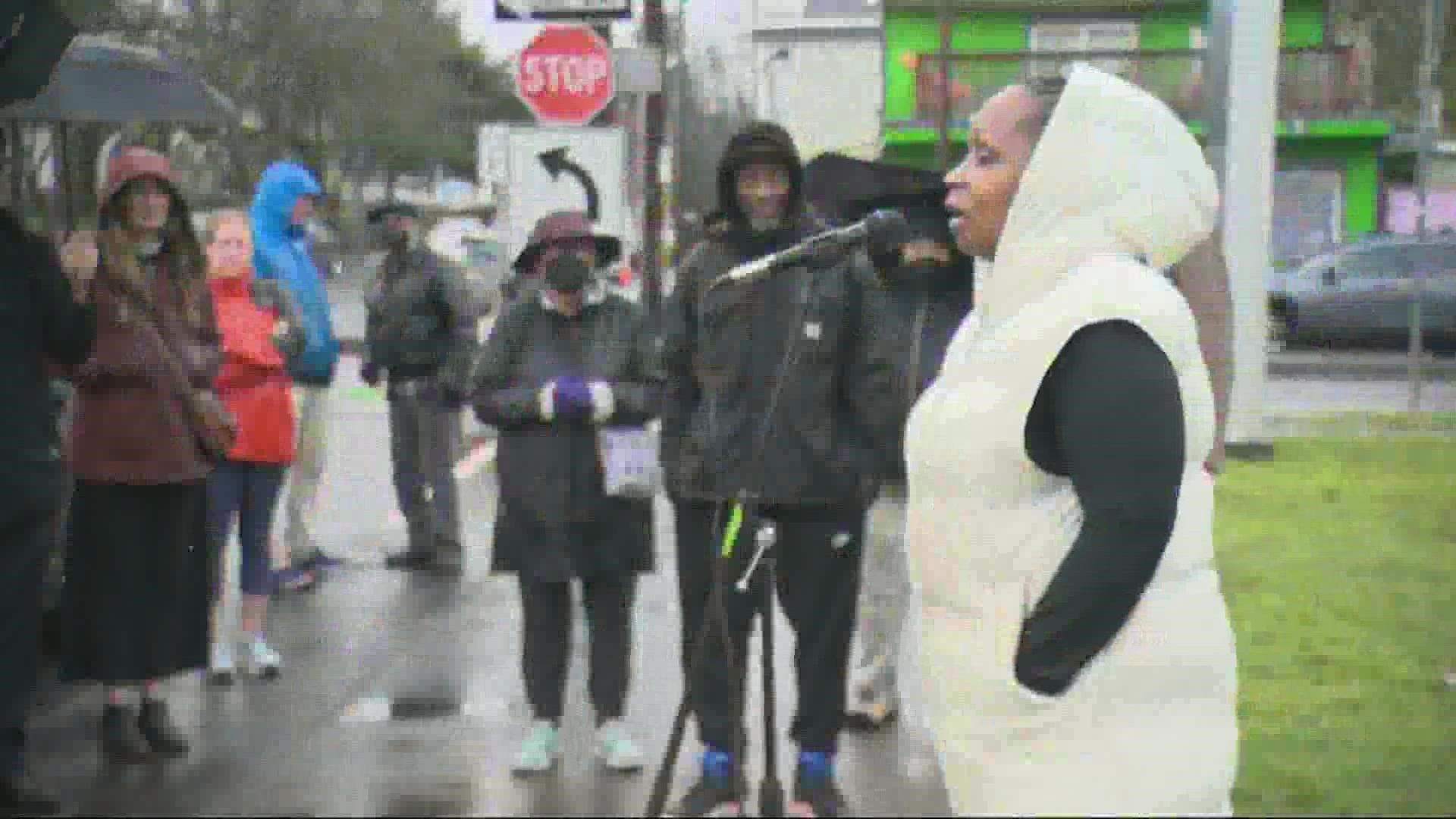PORTLAND, Ore. — A group of Portlanders is demanding the city of Portland pay millions in restitution to families who were displaced by a hospital expansion project in the early 1970s.
The Emanuel Hospital expansion project displaced 171 families in Northeast Portland's Albina neighborhood and destroyed dozens of businesses. Three-quarters of the displaced families were Black.
The city condemned, purchased, then demolished the homes and buildings under the name of "urban renewal." Emanuel Hospital, now known as Legacy Emanuel Medical Center, then purchased 55 acres from the city. The expansion never happened.
But the impacts were far-reaching for the families who lost their homes. A woman who goes only by the name Byrd said her grandparents were one of them.
"This battle has been going on since it started, since the '60s and '70s. I'm just the latest iteration," Byrd said. "My grandmother's house and my granddaddy's tavern were just down there, across the street. It was demolished and they were not compensated."
Byrd is the co-founder of a group called EDPA2, which stands for Emanuel Displaced Persons Association 2. EDPA2 teamed up to host a virtual forum this week, highlighting a new report produced by Portland State University graduate students.
The urban planning students are part of a team called FutureLab. The team spent months studying the Emanuel Hospital expansion's financial impact on families 50 years later.
The report concluded that the families who lost their homes would be owed at least $89 million in property wealth appreciation by today's standards. They factored in current fair market value and inflation to determine that dollar amount.
Byrd and others are now calling on city leaders to pay restitution before moving ahead with a planned redevelopment project near North Williams Avenue and Northeast Russell Street. That area was part of the land that was razed for the hospital expansion.
In 2017, the city of Portland formed a partnership with Legacy Health and Prosper Portland to work on plans to redevelop the 1.7-acre plot. The project is called the Williams and Russell Project and is described as a way to honor Portland's Black community while supporting housing and economic needs.
In response to EDPA2's calls for restitution and the report from FutureLab, Portland Mayor Ted Wheeler, Prosper Portland and Legacy Health released a joint statement. The statement claims that EDPA2 was an original member of the Williams and Russell Project working group but the EDPA2 representative chose to stop attending meetings more than two years ago. The statement does not comment directly on the group's calls for restitution or the report from FutureLab.
Below is the full text of the statement from Wheeler, Prosper Portland and Legacy Health.
In 2017 we announced an agreement to work together to facilitate a community-driven process that would determine a community vision and development proposal for the Williams & Russell site that honors the African-American community. In line with this commitment, the city of Portland, Legacy Health, and Prosper Portland have worked to engage with EDPA2 through a community-based process led by the Williams & Russell Project Working Group (PWG). The Project Working Group, which was formed in 2018, was nominated and selected by community members connected to N/NE and to local African American community-based organizations, including individuals whose families formerly owned property or ran businesses on the Williams and Russell property. EDPA2 was an original member of the PWG and participated in events until its representative chose to stop attending meetings more than two years ago. Since that time, PWG members, and the more recently formed Williams & Russell Community Development Corporation (CDC) Board members, have had an intermittent engagement with EDPA2. The CDC Board also approached EDPA2 about joining the Board. EDPA2 elected not to engage or submit a statement of interest. The CDC will ensure the community's identified priorities of culture, economic justice, connectivity, equity, and accountability remain front and center throughout the construction and development of the site.
Byrd responded, citing an emergency medical condition as a reason she stepped away from the project group. She also said that members of EDPA2 felt their voices were not being heard by members of the Williams and Russell Project.
"The project working group was hostile to questions and woefully ignorant of the history and what happened," Byrd said. "The project working group had no desire to include victim families of the Emanuel Hospital expansion."
You can read the entire FutureLab report here.
Learn more about the Williams and Russell Project here.

